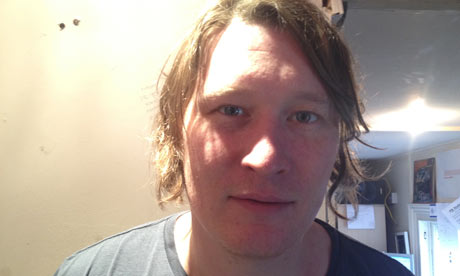
As gestures go, the decision in June 1985 by The Housemartins to sign their record deal with London-based label Go! Discs onstage at the 200-capacity New Adelphi Club in Hull was as symbolic as it was indicative of what was to follow.
In just over a year, the band would release the highly provocative album London 0 Hull 4, a thrill-a-minute Top 10 debut that would help confirm frontman Paul Heaton - later of the Beautiful South and now a successful solo artist - as one of the country's finest songwriters.
The decision by the Hull-based band to pay tribute to the venue in their inimitable style is recounted by former Housemartins drummer Hugh Whittaker in the book dedicated to the New Adelphi Club, One Man & his o Bog – 20 Years On The Toilet Tour. As club owner Paul Jackson explains, it's never been easy being a band - or a promoter - in Hull.
"Hull is great for live music," he says. "There is a really good local band scene here, lots of activity. The thing about Hull, though, is it gets a lot of very bad publicity. If any band starts getting any attention in London, the first thing people in the music industry say is, 'Oh, you can't say you come from Hull'."
In the past 10 years, Hull has been gradually rebuilding its local music scene - it now boasts several annual arts festivals - so that makes the news that Lamp in Norfolk Street has turned off the lights for the last time all the more worrying for acts and promoters. For the past decade, the venue has acted as a launch-pad for local talent and touring bands as well as hosting aftershow parties for acts such as Arctic Monkeys.
The loss of a live music venue in a city can have a devastating effect - and it is happening on a depressingly familiar basis in the UK - leaving an area devoid of that crucial space where local acts and promoters can learn how the industry works and make the all-important mistakes early in their career.
In a statement posted on Lamp's Facebook page on June 27, owner Gavin Brennan paid tribute to the bands, promoters and staff at the venue but explained that keeping the club open was no longer an option.
"I am sorry to anyone I have let down or disappointed," he wrote. "We are incredibly proud of what we were and what we stood for and I hope we have a place in your hearts. Please don't think we gave up without a fight. We have run the venue on a shoestring for as long as I can remember.
"Unfortunately, we just couldn't make the bank share in our belief and they have decided to call it a day."
The news has left local promoters stunned.
"This closure will be a big loss to Hull's live music scene as it had its own niche and was starting to expand the variety of its promoters and live music events midweek," says Darren Bunting of Music HQ. "Hopefully that space will be filled by a new venue in the near future which can build on the good things that were happening at Lamp."
Live music is increasingly important to bands now with many releasing albums to promote their tours, rather than going on tour to promote a release.
Without small venues for touring acts to visit, a crisis could develop for promoters and future superstars.
As Colin Greenwood recounts in One Man & his Bog, playing clubs was essential to the rise of Radiohead.
"We loved playing the Adelphi, for its quirks and hospitality and the closeness of the audience," he notes. "We all marvelled at the pool table in the front room, and were grateful for a fiver each from [the owner] to eat out at a delicious local Thai restaurant."
Not just Hull
Yet it is not only in Hull where the doors are closing on live music venues in the North; Leeds Sheffield, Leicester and Manchester have all seen small venues close in the past few years due to rent rises and falling audience numbers while just recently it was announced that the Independent in Sunderland is also to close after a demolition order was placed on the building.
The owners of Independent have been told they have several months to find new premises with the final gig at the building scheduled for January 12, 2013.
Independent also plays a pivotal role in the community it serves. Since it opened, the venue has been at the forefront of bringing new music into the city with bands such as Glasvegas, the Pigeon Detectives, Spector and the Klaxons performing while local acts the Lake Poets and Frankie and The Heartstrings also started off their careers by playing there.
There is hope, however, that Independent will re-open in the city with the owners already in discussions about a possible move.
"We negotiated an extra five months at the site to allow us, hopefully, a near enough seamless move into new premises," says promotions manager Ben Wall. "It has taken us five years to get where we are now and we have had some really big bands play. If we had started missing bands now, then it would have been impossible to get them back later on."
* Allan Glen is a writer and journalist. His book, Stuart Adamson – In A Big Country, is published by Polygon. Since 2005 he has made a living writing about music and popular culture for The Guardian, Music Week, The Stage and Live UK. Prior to becoming a full-time writer he was a broadcast journalist with the BBC and worked at The Guardian, Melody Maker, NME and the South China Sunday Morning Post in Hong Kong.

